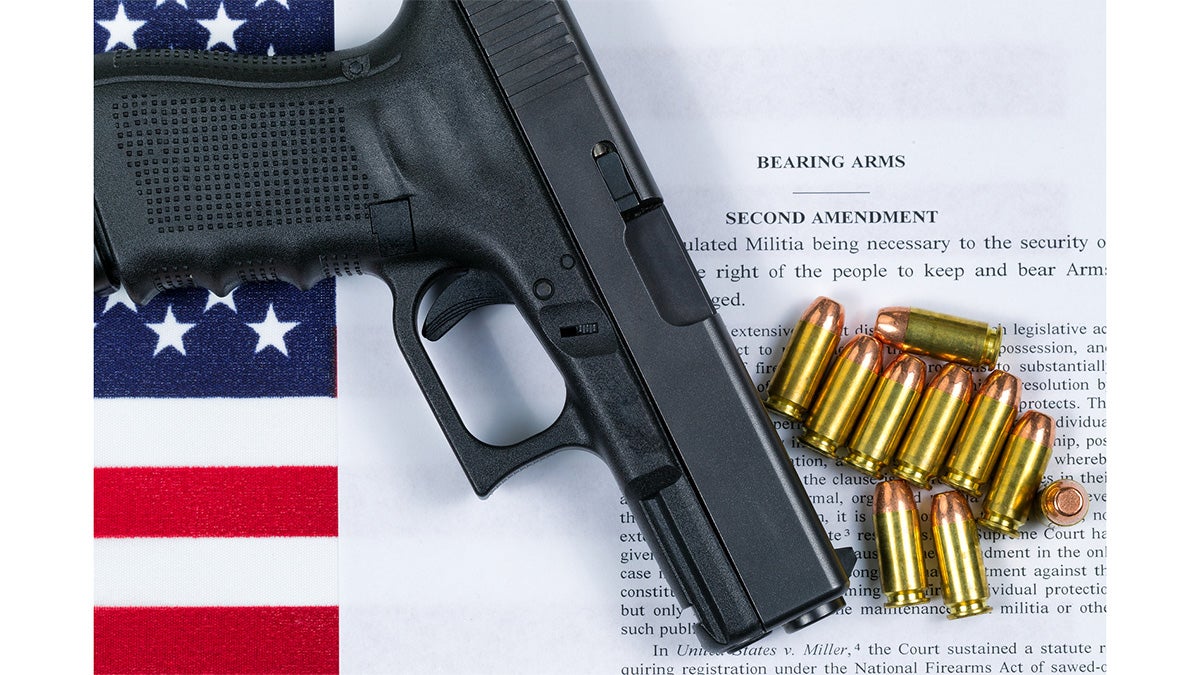Pa. Supreme Court’s overturning NRA-backed law hailed as gun-control victory
Listen
The Pennsylvania Supreme Court has struck down Act 192
The Pennsylvania Supreme Court has struck down Act 192, the controversial law that made it easier for groups including the NRA to sue municipalities over gun-control measures.
Opponents of the act hailed the decision as the final blow to a law that prompted more than 20 cities across the state to weaken or drop gun-control regulations.
The law, signed by then-Gov. Tom Corbett in 2014, was wedged into another bill about something completely unrelated: criminal penalties for stealing scrap metal.
Affirming a lower-court decision, the high court found that the law is “void in its entirety” because it violates the state Constitution’s single-subject rule, banning unrelated topics from consolidation in one law.
“You can’t just tack on an entirely unrelated provision to a perfectly noncontroversial bill at the very last minute in order to get through a very controversial piece,” said Richard Feder, chief deputy solicitor with the city of Philadelphia. “The decision is very important.”
The real intent of the bill, according to Feder, was to intimidate smaller municipalities into repealing gun laws from fear of paying the NRA’s legal fees.
Smaller municipalities rolled back gun ordinances, including laws requiring gun owners to report lost and stolen weapons, which the NRA opposes. Meanwhile, larger cities joined forces in a suit attacking the bill as unconstitutional. And late Monday, the state’s highest court delivered a victory to Philadelphia and the other cities challenging the NRA.
The NRA has filed a raft of lawsuits against cities including Philadelphia, Lancaster and Pittsburgh over passing gun restrictions that go further than state law.
The Philadelphia suit has been dismissed, but the battles in Lancaster and Pittsburgh remained on hold, likely to be become moot in light of the state Supreme Court decision.
After the passage of Act 192, organizations — rather than only individuals — were able to bring lawsuits over gun regulations. In legal parlance, the groups were given legal “standing,” which is to say, if the group’s members could show that they were injured in some way, it would be enough to file a suit. The act also required municipalities to pay for attorneys’ fees, prompting scores of city officials to repeal measures, including some that required gun owners to report lost or stolen guns. The NRA called the act “the strongest firearms pre-emption statute in the country.”
Scott Charles, trauma outreach coordinator with Temple University Hospital, said the decision to strike down the law is a big victory for gun-control advocates.
“When neighboring communities have weaker gun laws than, say, Philadelphia, that just adds to the problem, because they’ve taken the regs off the books because of the fear of being sued,” Charles said. “This is a constant, ongoing battle. But, hopefully, this represents a bit of a swing.”
NRA challenges expected
Jonathan Goldstein, an attorney with the NRA, said critics of Act 192 are likely in for future legal encounters. He points to a 1974 state law that prevents municipalities from passing gun restrictions that are pre-empted by state law.
Nonetheless, cities, including Philadelphia, have passed gun-control regulations that are stricter than state law, but many have not been enforced. Goldstein said once those laws are enforced, it would set off a legal fight.
For instance, it’s illegal to bring a gun into a Philadelphia playground or recreation center, but no one has yet been arrested for violating the 2013 law. Once someone is arrested, Goldstein said, Philadelphia will most likely have to defend a lawsuit.
“Municipalities that enact these ordinances do so at their own peril,” said Goldstein. “The NRA is here in Pennsylvania, we’re here on behalf of our members. And enacting those ordinances is not beneficial. It’s a waste of time, energy and money, and it’s illegal.”
Goldstein went on to say that the public deserves a uniform body of statewide gun laws.
“The goal of people who are changing those municipal ordinances is to create a patchwork of unworkable laws across the commonwealth,” Goldstein said. “To chill the lawful behavior of gun owners.”
Shira Goodman, executive director of CeaseFire PA, a statewide gun violence-prevention organization that strongly lobbied against the act, said she was pleased with the ruling.
The act represented the gun lobby “playing fast and loose with the Constitution,” she said, and the high court said that’s unacceptable.
“We are heartened by the decision, but know that the gun lobby will continue to try to undermine local authority and action to keep communities safe,” Goodman said. “We stand ready with town councils, mayors and citizens across Pennsylvania to fight that effort.”
WHYY is your source for fact-based, in-depth journalism and information. As a nonprofit organization, we rely on financial support from readers like you. Please give today.

